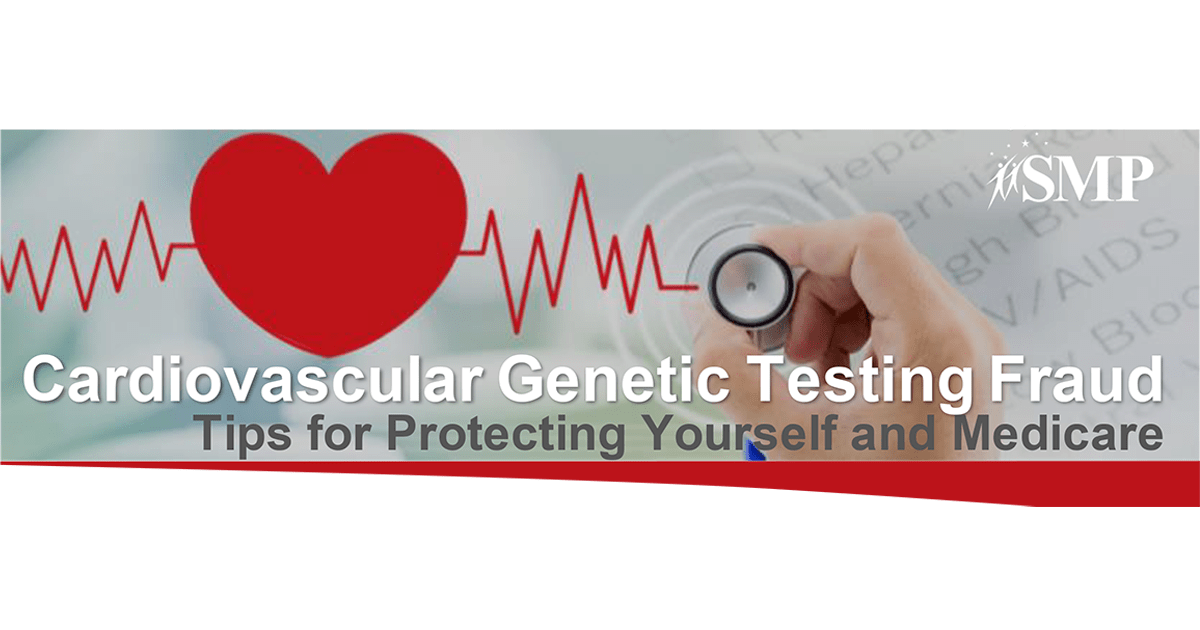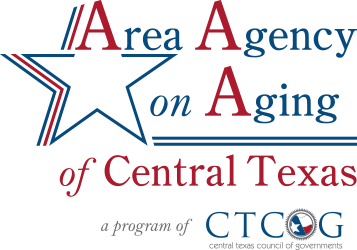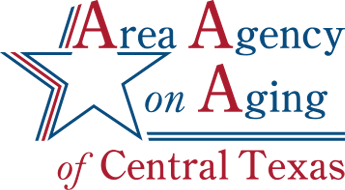
SMP Sees Cardiovascular Genetic Testing Used in New Fraud Trend
The following information is from a tip sheet created by the Senior Medicare Patrol. Download the tip sheet from the Senior Medicare Patrol on protecting yourself from cardiovascular genetic testing fraud.
Every time there’s a medical advance, there’s a scammer waiting around the corner to exploit it. When genetic testing first became an important medical service, scammers targeted cancer screenings and medication metabolization (called pharmacogenetics).
The latest growing genetic testing fraud trend focuses on cardiovascular genetic testing. Scammers are offering Medicare beneficiaries cheek swabs for genetic testing to obtain their Medicare information for fraudulent billing purposes or possibly medical identity theft.
“We’re hearing reports of scammers calling Medicare beneficiaries, claiming their cardiologist wants them to have this test and offering to send a kit. In reality, their cardiologist did not make any such request,” said Jennifer Salazar, Program Director with the Texas Senior Medicare Patrol. “Their goal is not to help the beneficiary; it’s to get their Medicare information, which scammers can use to bill Medicare for medically unnecessary genetic testing.”
What is Cardiovascular Genetic Testing Fraud?
Cardiovascular genetic testing fraud occurs when Medicare is billed for a cardio type of test or screening that was not medically necessary and/or was not ordered by a beneficiary’s treating physician.
What are Examples of Cardiovascular Genetic Testing Fraud?
- Here are several ways cardiovascular genetic testing is advertised:
- Cardio/cardiac genetic screening/test
- Cardiovascular genetic screening/test
- Comprehensive cardiovascular panel
- Comprehensive cardiomyopathy NSG
- Cardiovascular disease genetic kit
- Hereditary cardiovascular profile
- A company offering you “free” or “at no cost to you” testing without a treating physician’s order and then billing Medicare.
- A company using “telemedicine” to offer testing to you over the phone and arranging for an unrelated physician or “teledoc” to order the tests.
- Billing Medicare (usually thousands of dollars) for a broad range of cardiac genetic tests that you did not request or possibly even receive.
- A company calls you stating your doctor or cardiologist requested that you have the testing done and they will send you a testing kit.
What Happens if Medicare Denies the Cardiovascular Genetic Test Claims?
“The repercussions of falling for a scam of this nature can be devastating. If Medicare denies a cardiovascular genetic test claim, a beneficiary might be responsible for the entire cost of the test: The average cost is $9,000 to $11,000,” said Salazar.
Medicare Billing Codes
There are numerous Current Procedural Terminology (CPT) codes that have been associated with cardiovascular genetic testing complaints as noted by SMP. The codes are in the 81400 – 81500 CPT series associated with Gene Analysis & Molecular Pathology. You can review your MSN for these codes.
When is Cardiovascular Genetic Testing Covered by Medicare?
- When the test is medically reasonable and necessary.
- Federal regulations define medical necessity as “services or items reasonable and necessary for the diagnosis or treatment of illness or injury or to improve the functioning of a malformed body member.”
- When it is ordered by a treating physician.
- Federal regulations define a treating physician as “the physician who furnishes a consultation or treats a beneficiary for a specific medical problem and who uses the results in the management of the beneficiary’s specific medical problem. Tests not ordered by the physician who is treating the beneficiary are not reasonable and necessary.”
- When a treating physician orders the test as a diagnostic service and uses the results to manage the patient’s condition.
What Can You Do to Stop Cardiovascular Genetic Testing Fraud?
- Be sure your doctor has assessed your condition. Although Medicare covers many genetic tests to detect heart disease, it is not a test to predict or screen for cardiovascular disease (aka the diseases that affect the heart or blood vessels).
- Do not give out your personal information to someone calling claiming your cardiologist has requested the testing.
- Do not give out your personal information or accept screening services from someone at a community event, a local fair, a farmers’ market, a parking lot, or any other event.
- Always read your Medicare Summary Notice (MSN) or Explanation of Benefits (EOB). The words “gene analysis,” “molecular pathology,” or “laboratory” may indicate questionable genetic testing has occurred.
- If you received a cardiovascular genetic testing kit or test that was not medically necessary, report your concerns about billing errors or possible fraud and abuse to your local SMP.
How Your Senior Medicare Patrol (SMP) Can Help
Your local SMP is ready to provide you with the information you need to PROTECT yourself from Medicare fraud, errors, and abuse; DETECT potential fraud, errors, and abuse; and REPORT your concerns. SMPs and their trained volunteers help educate and empower Medicare beneficiaries in the fight against health care fraud. Your SMP can help you with your questions, concerns, or complaints about potential fraud and abuse issues. It also can provide information and educational presentations.
To locate your state Senior Medicare Patrol (SMP): Visit www.smpresource.org or call 1-877-808-2468.
This project was supported, in part, by grant number 90MPRC0002 from the U.S. Administration for Community Living, Department of Health and Human Services, Washington, D.C. 20201. Grantees undertaking projects under government sponsorship are encouraged to express freely their findings and conclusions. Points of view or opinions do not, therefore, necessarily represent official Administration for Community Living policy.



